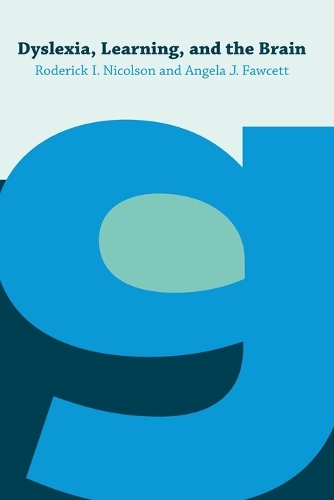
Dyslexia, Learning, and the Brain
(Paperback)
Publishing Details
Dyslexia, Learning, and the Brain
By (Author) Roderick Nicolson
By (author) Angela Fawcett
MIT Press Ltd
MIT Press
13th August 2010
United States
Classifications
Professional and Scholarly
Non Fiction
616.8553
Physical Properties
Paperback
304
Width 152mm, Height 229mm, Spine 16mm
431g
Description
A unique overview of research on dyslexia and an account of the underlying causes at cognitive, brain, and neural system levels that provides a framework for significant progress in the understanding of dyslexia and other related learning disabilities.Dyslexia research has made dramatic progress since the mid-1980s. Once discounted as a "middle-class myth," dyslexia is now the subject of a complex-and confusing-body of theoretical and empirical research. In Dyslexia, Learning, and the Brain, leading dyslexia researchers Roderick Nicolson and Angela Fawcett provide a uniquely broad and coherent analysis of dyslexia theory. Unlike most dyslexia research, which addresses the question "what is the cause of the reading disability called dyslexia" the authors' work has addressed the deeper question of "what is the cause of the learning disability that manifests as reading problems" This perspective allows them to place dyslexia research within the much broader disciplines of cognitive psychology and cognitive neuroscience and has led to a rich framework, including two established leading theories, the automatization deficit account (1990) and the cerebellar deficit hypothesis (2001). Nicolson and Fawcett show that extensive evidence has accumulated to support these two theories and that they may be seen as subsuming the established phonological deficit account and sensory processing accounts. Moving to the explanatory level of neural systems, they argue that all these disorders reflect problems in some component of the procedural learning system, a multiregion system including major components of cortical and subcortical regions. The authors' answer to the fundamental question "what is dyslexia" offers a challenge and motivation for research throughout the learning disabilities, laying the foundations for future progress.
Reviews
"More than any other recognized learning disorder, the history of the study of dyslexia has been long and filled with great discoveries and innovations, as well as failures. Dyslexia, Learning, and the Brain, makes a unique and significant contribution by reviewing this huge literature. But more importantly, this text stands out among most others in the area, by presenting alternative science-based theories in a coherent manner, and interweaving them with some of the commonly accepted ideas in cognitive neuroscience. The author's ideas are often refreshing, and I consider them called for if we are to do the necessary 'out-of-the-box' thinking towards advancing the field. Nicholson and Fawcett have, over the years, challenged and engaged the dyslexia community. Their voice in this text should be heard clearly by any student of the field young or old." Jeffrey W. Gilger , Associate Dean for Discovery and Faculty Development, Purdue University, and Chair, Research Subcommittee, the International Dyslexia Association
Author Bio
Rod Nicolson is Professor of Psychology and Dean of the Faculty of Science at the University of Sheffield. Angela Fawcett was Reader in Dyslexia at the University of Sheffield and is now Professor of Child Research and Director of the Centre for Child Research at Swansea University.
